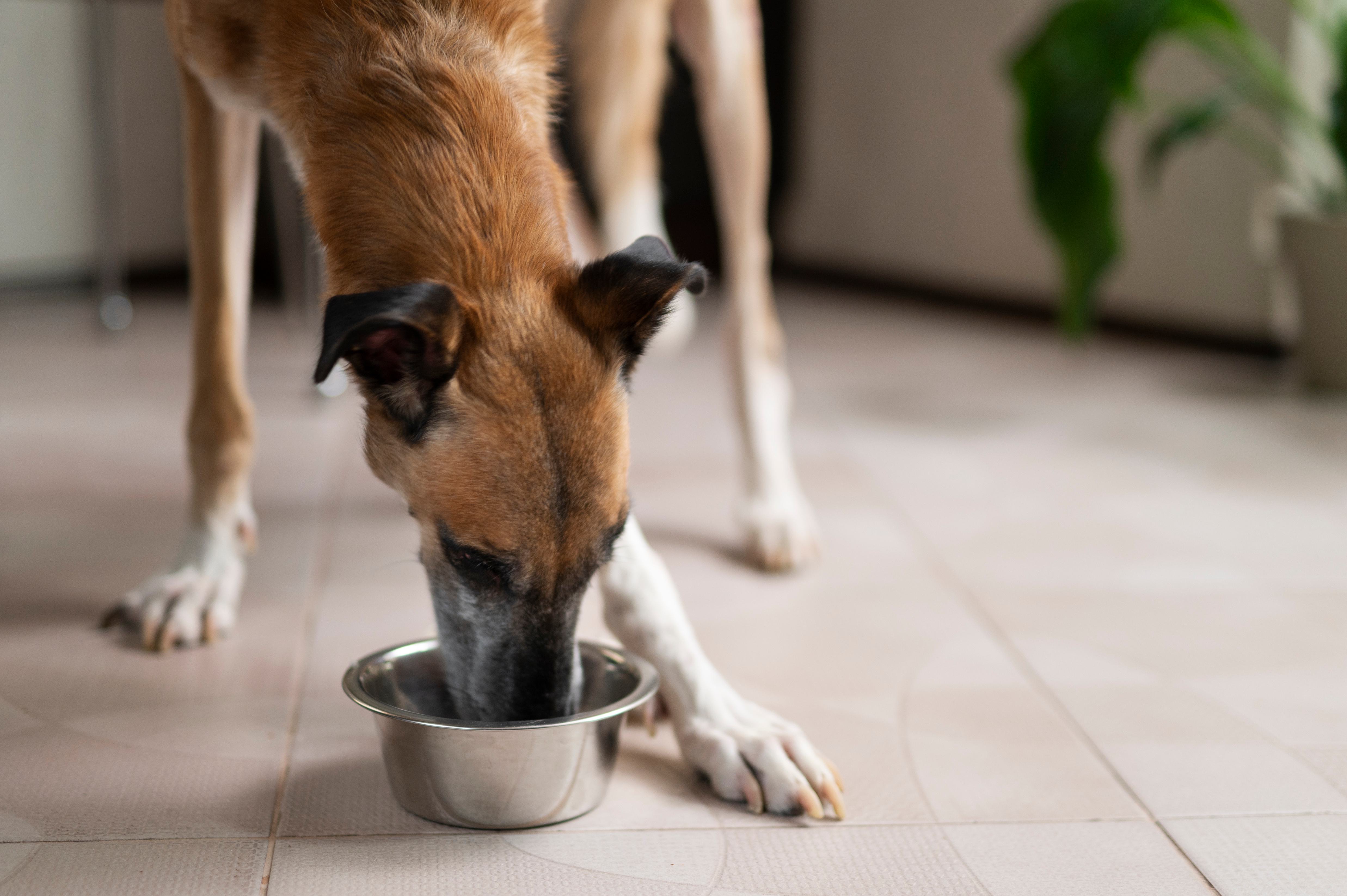Diarrhoea in Dogs: Common Causes and Treatment

By Evelyn Harcourt
November 19, 2024 - 1 min read
Loose stool in dogs is a hugely common issue with a wide range of causes. For most, signs resolve within a day or two, and little intervention is needed. However, sometimes diarrhoea can be an indication of an underlying issue or may linger on for weeks on end.
Read on to learn about the main causes of canine diarrhoea and when owners should intervene. This article also discusses general treatment options and preventative strategies.

Why Does My Dog Have Diarrhoea?
If your dog’s poo becomes loose or watery, you will be wondering why this has happened. Some of the more common reasons would include:
- Dietary indiscretion: Eating something they should not have, such as mud, gone off food, or cat food.
- A viral or bacterial gastroenteritis: Some of the most well-known infections include Parvovirus and Salmonellosis.
- An abrupt diet change: For those with a more sensitive stomach, any diet change needs to be made slowly, over a matter of days.
- Parasites: Infestations with worms or protozoa (like Giardia or Coccidia) would not be uncommon. We see this mostly in puppies, particularly if they’ve been kept in unhygienic conditions.
- Stress: A ‘worrying’ event such as fireworks, moving home, or a long car journey could be enough to cause runny stool that day or the next.
- A food allergy: These tend to develop before the age of three, and some of the more prevalent triggers include chicken, beef, grains, and eggs.
- A chronic medical condition such as liver disease, a hormonal disorder, or kidney failure. These patients will generally have other symptoms alongside their diarrhoea, such as weight loss or vomiting.
- Toxin ingestion: Some more obvious culprits include raisins, chocolate, cleaning products, and flowers. When a toxin ingestion is suspected, it is important to contact your local veterinary clinic urgently.
What Should I Do If My Dog Has Diarrhoea?
Many cases of diarrhoea can be managed effectively from home. Your pet should be happy to eat and drink, and acting otherwise normal.
Stick to a bland diet and try to keep your dog well-hydrated. Some owners think they should withhold food, but this is not the case and can lead to low blood sugar and dehydration.
If your dog has longer fur, it is a good idea to give them ‘bum baths’ as needed, and consider trimming their fur shorter, to prevent soiling and clumping.
You should make sure your pets are up to date with their worming prevention, and that there are no toxins in the home or garden they could have access to.
Keep in mind that your dog is going to need to go outside more regularly and will have a greater urgency to pass stool. If they do have accidents indoors, clean them up promptly with an enzymatic cleaner. Never tell your dog off for this; it is largely out of their control!
For some, it is a good idea to start a probiotic anti diarrhoea paste, to help balance their gut microflora and shorten the duration of their diarrhoea. These products are usually available from pet shops and vet clinics, as well as online. This would typically be given for a course of 2-4 days, along with food.

What to Feed Your Dog With Diarrhoea
One simple change to make would be to your dog’s diet. When their poop is runny, they will generally benefit from a bland diet. Sticking to highly digestible foods like chicken, rice, and white fish is a good option. The AKC also recommend pureed pumpkin, which is high in fibre.
As those with diarrhoea are losing more water than normal through their intestinal tract, it is also wise to do what you can to keep your pooch well hydrated. This can mean adding water to meals and ensuring their water bowl is topped up with fresh water.
It is also a nice idea to offer additional fluid sources, such as dog soups, bone broth, or veterinary rehydration solutions. This is of particular help to a puppy, a small breed dog, or a senior dog. These are the individuals who don’t cope as well with fluid loss.

How Can I Prevent My Dog from Having Diarrhoea?
Not all cases of diarrhoea are preventable. Still, there are things you can incorporate into your dog’s lifestyle to prevent loose stool.
Try to keep your dog’s diet consistent, and stop them from eating things outside the home when at all possible. Don’t give them rich treats or human foods, such as bacon, biscuits or burgers.
If they scavenge on a walk, consider keeping them on a lead and/or using a basket muzzle while outdoors.
Keep your dog up to date with their parasite prevention. How often this is done and which product you use will depend on your dog’s age and lifestyle, so do check with your veterinarian what is most appropriate for them.
When to Seek Help for Your Dog’s Diarrhoea?
You will firstly want to assess your dog, taking a look at the bigger picture. Are they still alert, eating and acting otherwise normal? Or do they seem lethargic, off their food and struggling to keep up on their walks?
A dog who is coping well and has mild diarrhoea is usually a patient we can manage from home. However, if you’re concerned, your dog is not coping or if the diarrhoea is not resolving within one to two days, it is important to contact your vet right away.
If you see blood or mucus in the poop, it is advised you contact your vet. This is especially true for pups, seniors and those in poor health.
If you’re concerned your dog has eaten a toxin, this is a true emergency, and you should contact an emergency vet without delay. Click here to find an emergency clinic near you today.

Will the Vet Run Any Tests?
Most of the time, your vet is going to examine your dog and issue medicine. Uncommonly, further tests would be recommended. These may include a blood test, stool analysis, and/or abdominal imaging.
Generally, tests are going to be advised if your dog is very unwell, or if their symptoms have been ongoing for some time.
If you or your vet want to perform a stool analysis, you will usually want to collect a ‘pooled’ sample over three days. This helps to identify any parasites your dog could be passing, or any infection present.
Get More Advice On Diarrhoea in Dogs
If you’re unsure whether your dog needs veterinary care or simply want to talk more to a vet, please don’t hesitate to get in touch with us.
We’re always happy to discuss what may be going on with your dog and schedule an appointment if needed.
Continue reading

Rabbit Haemorrhagic Disease (RHD): What to Do
Learn what Rabbit Haemorrhagic Disease is, the symptoms to watch for, and what to do next.
Read article
Dog Back Pain: Symptoms and Treatment
Discover the symptoms, causes, and treatments of dog back pain and when to see a vet.
Read article
What is the Best Pain Relief for Dogs?
Explore safe pain relief options for dogs, including treatments, signs, and vet guidance.
Read article